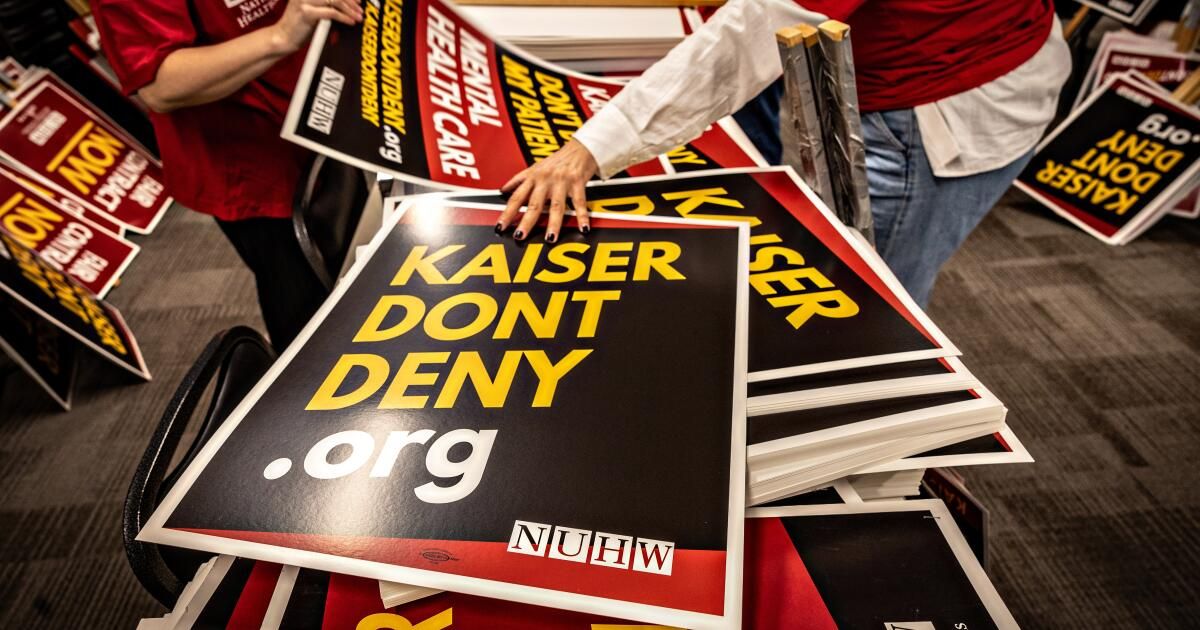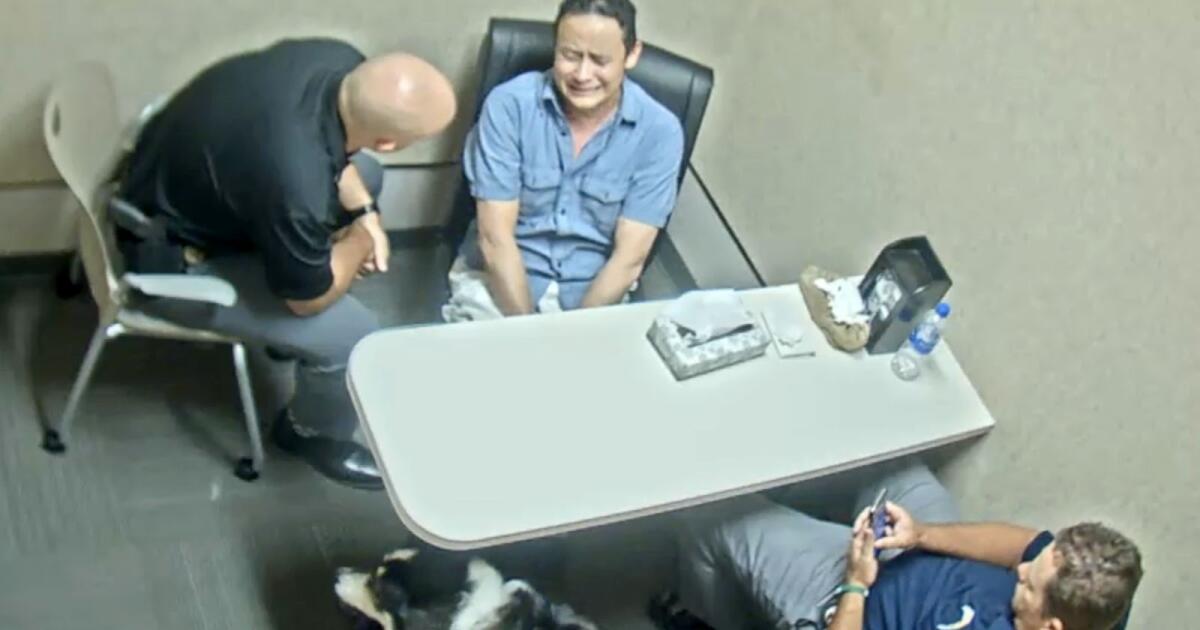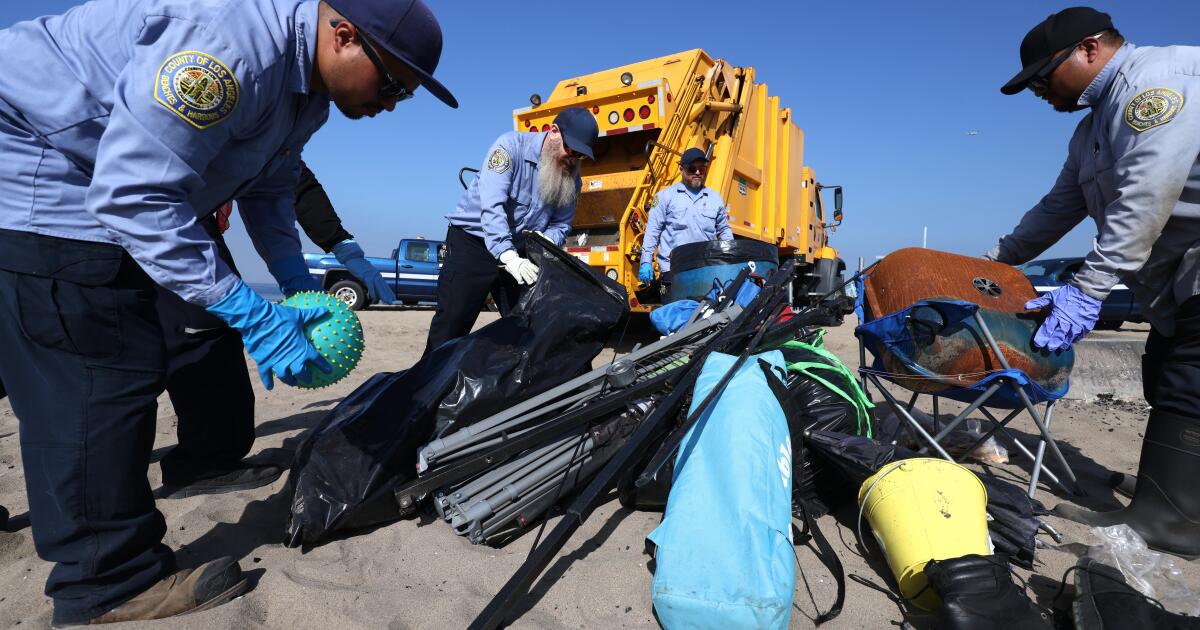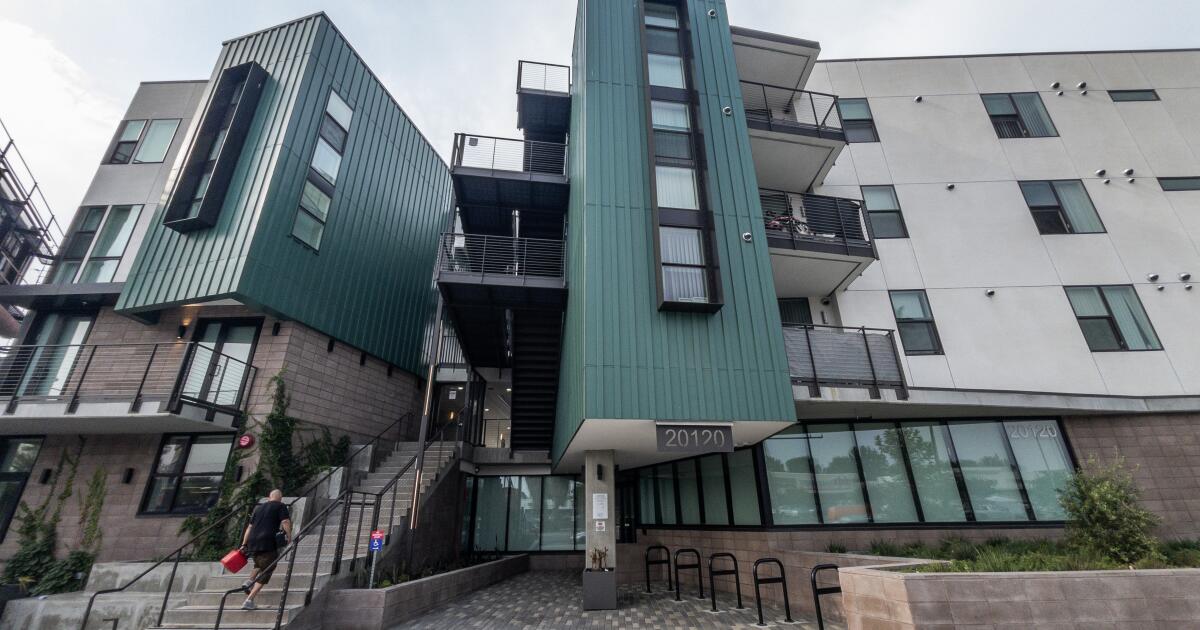Psychologists, therapists and other mental health professionals working for Kaiser Permanente across Southern California went on strike Monday morning, protesting that the health care organization had failed to address long-standing problems hampering their health care. mental.
The National Union of Health Care Workers said nearly 2,400 mental health workers had launched their job action after Kaiser management rejected proposals that the union said would curb employee turnover and improve care. The NUHW contract for the workers expired on September 30.
“Unless we go on strike, our co-workers will continue to leave,” San Diego psychologist Josh Garcia said in a union statement before the strike, “and our patients will continue to struggle in an underfunded and understaffed system that fails to meet their needs.” .”
Before the strike, Kaiser said he had made strong proposals to improve salaries, benefits and preparation time for therapists. He blamed the union for “moving slowly through the negotiation process,” saying any strikes were “because the NUHW leadership chose this path, rather than a path to an agreement.”
The strike comes a year after Kaiser reached a $200 million settlement with California regulators who found patients were subject to excessive wait times for therapy appointments. Kaiser agreed to pay a $50 million fine and spend $150 million over five years to improve its mental health care.
Kaiser said that even before the state agreement, it had begun to increase spending on mental health care. The organization said it had spent more than $1 billion to expand its mental health care in recent years and had increased its mental health workforce in Southern California by more than 30%.
As the health care organization saw “all over California, all over the country, this mental health crisis, we knew we needed to act quickly,” said Rhonda Chabran, its vice president of behavioral health and wellness for Southern California and Hawaii.
Union leaders said problems have persisted. In a recent letter to the state, NUHW alleged that Kaiser continued to violate California law, which sets deadlines for providing mental health care, and that “these failures are widespread.” NUHW said in its surveys of Kaiser mental health workers in Southern California, 62% of respondents said their departments were understaffed to provide timely and appropriate care.
The union said it was pushing for higher wages, better benefits and more guaranteed time to perform tasks outside of patient appointments. NUHW members lamented that unlike in Northern California, where the union said Kaiser therapists are now guaranteed seven hours a week to perform tasks such as preparing treatment plans, Southern California therapists with Kaiser they can only have two hours a week to do it.
“There are many things we should do when preparing for a visit: Develop appropriate treatment plans. Writing letters to our clients… They don't give us time to do that,” said Lisa Delgadillo, a Kaiser psychiatric social worker in Fontana. “People think therapy is just talking to people, but it's more than that.”
Kassaundra Gutierrez-Thompson, a psychiatric counselor, said she sees a dozen or more patients a day in a Kaiser virtual therapy program intended for “mild to moderate” patients. Each of the sessions lasts half an hour, he said, but scheduling and other tasks reduce that time.
Gutiérrez-Thompson compared it to being a factory worker. “It's really hard to continue being a good therapist in this system,” he said. “We have to make decisions like, 'Do I make eye contact or finish this note?'”
NUHW has also proposed a series of increases totaling more than 30% over four years. Union leaders said the pay increases were necessary to align their compensation with that of other health care professionals at Kaiser.
Kaiser said its Southern California therapists already have generous benefits and compensation, with above-market salaries, and that it had offered raises at the bargaining table totaling more than 18%. It also said it had offered more time for tasks outside of face-to-face appointments, but that the union proposal could prevent therapists from seeing patients during a significant part of their work week.
The health system said it had plans to minimize potential disruptions from the strike, which has no set duration. Because Kaiser relies not only on employees but also on “an outside network of contracted providers” for mental health care, it estimated that 60% of its patients receiving mental health and addiction services currently receive care from providers that will not participate in the NUHW strike. .
If their regular provider is on strike, Kaiser said, “patients will have the opportunity to be seen by another professional from our extensive network of highly qualified, licensed therapists.”
Union leaders urged the state to monitor how Kaiser was providing care during the strike, noting that the state Department of Managed Health Care found it had canceled appointments for tens of thousands of patients during a strike by Northern California therapists two years ago. .












